Define density.
Density is mass per unit volume.
Define compound.
A substance that consists of two or more elements chemically combined together.
What is filtration?
A method used to separate insoluble solids from liquids.
What are animals with backbones known as?
Vertebrates
A specialised structure in the cell that performs a specific function.
The diagram of the vernier calipers shows the reading when its two jaws clamp a wooden sphere measuring its diameter. What is the diameter of the wooden sphere?
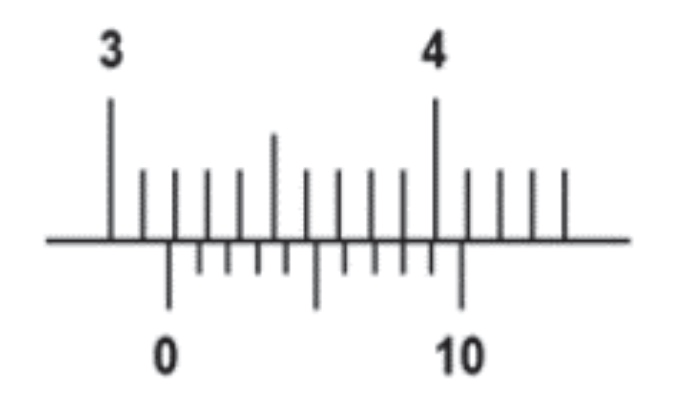
3.18 cm
Which model best represents a compound?

D
What is the best way to separate a mixture of iron and aluminium?
magnetic attraction
What is dichotomous key?
A chart that classifies objects by dividing a group into two smaller groups at each stage
The diagram below shows a specialised plant cell.
For what function is this cell modified?
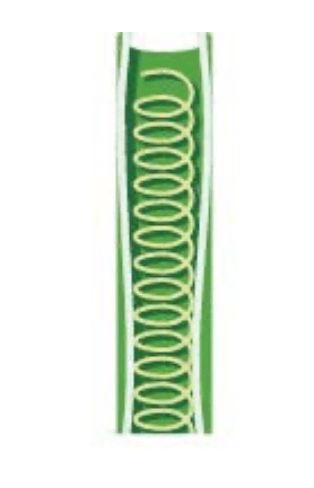
To transport water and dissolved mineral salts.
Which physical property explain why diamonds are used in drill bits?
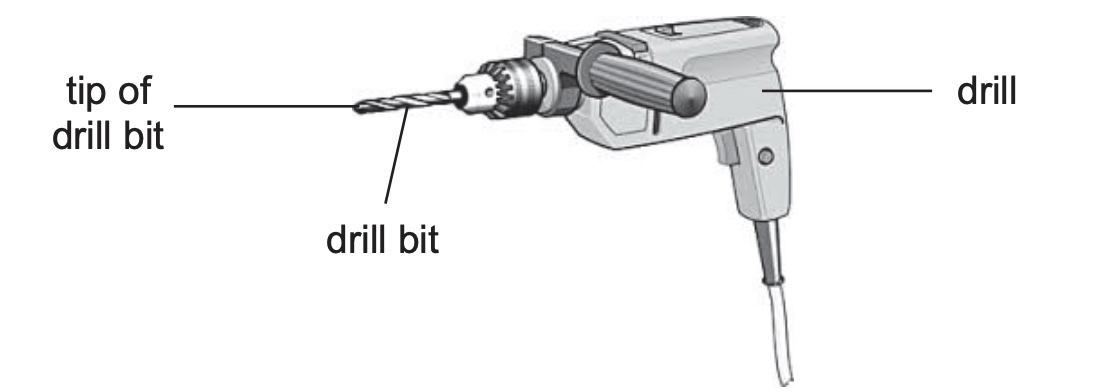
hardness
Iodine crystals dissolve in ethanol to form a solution.
In this case, iodine crystals are the (i) ............ while ethanol is the (ii).........
(i) solute
(ii) solvent
Name 3 of the 4 Singapore's National Taps.
desalinated water
catchment areas / reservoirs
Newater
imported water
State the groups which these animals belong to.
Describe 3 differences between these animals.
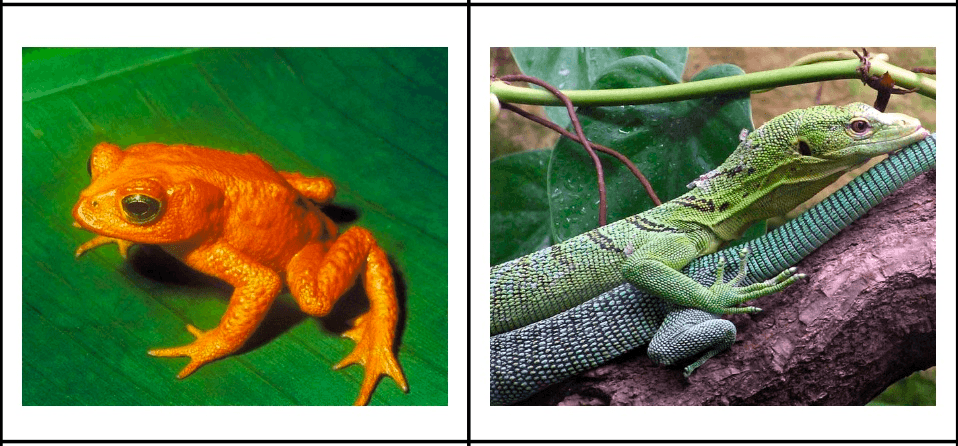
frog - amphibians (moist skin; breathe thro' skin or lungs; lives in both water and land)
chameleon - reptile (dry & scaly skin, breathe thro' lungs; lives on land)
Name the two structures in the diagram.
Describe the function of the flagellum.
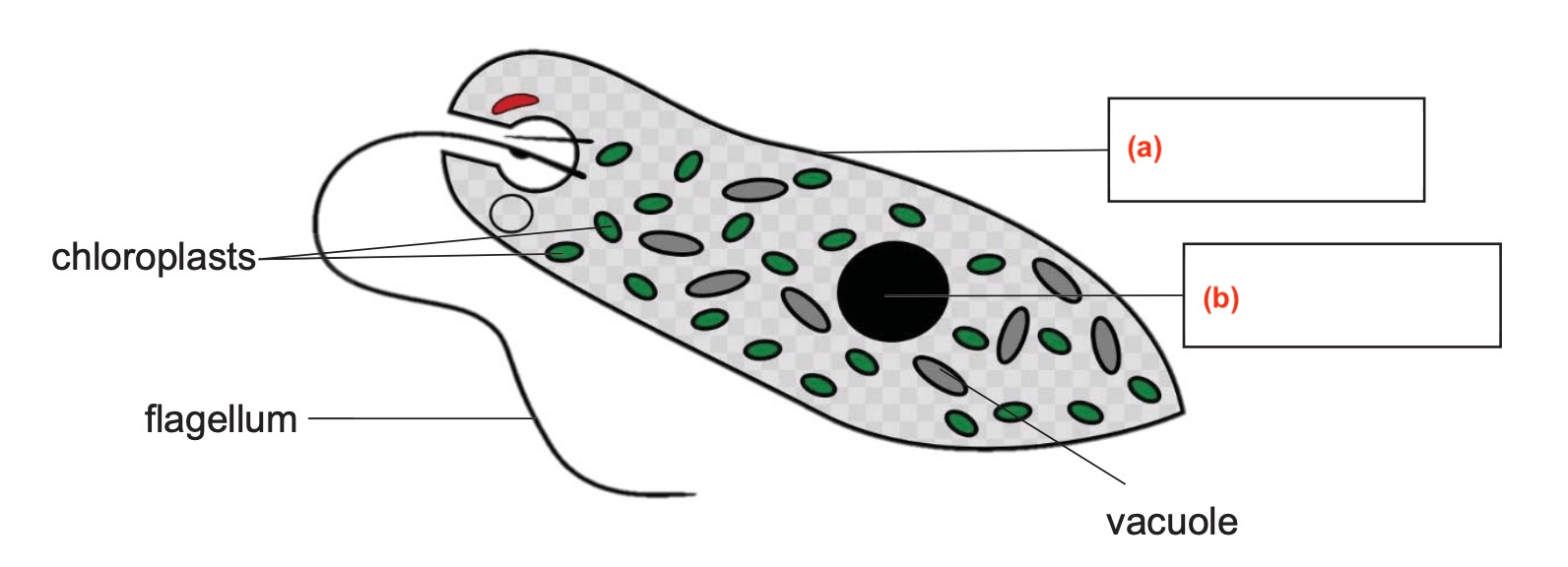
(b) nucleus
To help the cell move.
 To make the submarine float, the ballast tanks are filled with air. To make it sink, the ballast tanks are filled with water.
To make the submarine float, the ballast tanks are filled with air. To make it sink, the ballast tanks are filled with water.
When the ballast tanks are filled with water, how do the submarine’s total mass, volume and density change?
mass increases,
volume remains the same,
density increases.
List all the elements and the number of atoms present in CH3COOH.
Carbon, Hydrogen, Oxygen
8 atoms
(a) Name this separation technique.
(b) Which ink contains only one dye?
(c) Explain the results for ink B.
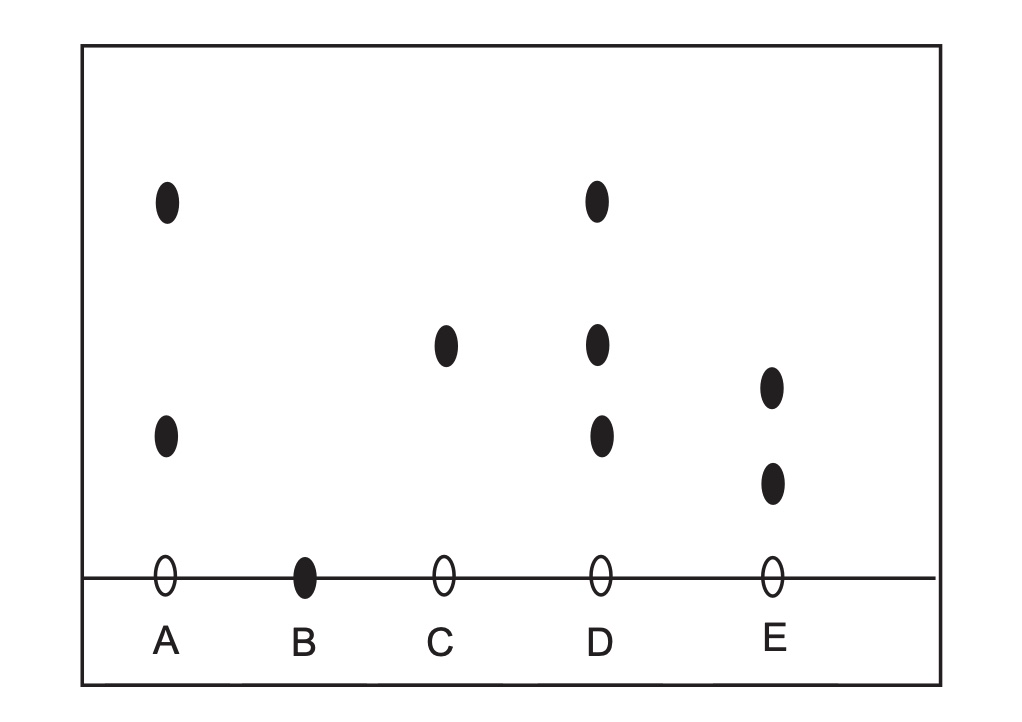
(a) paper chromatography
(b) ink C
(c) Ink B is not soluble in the solvent.
Complete the dichotomous key with the observable characteristics of the animals caught.

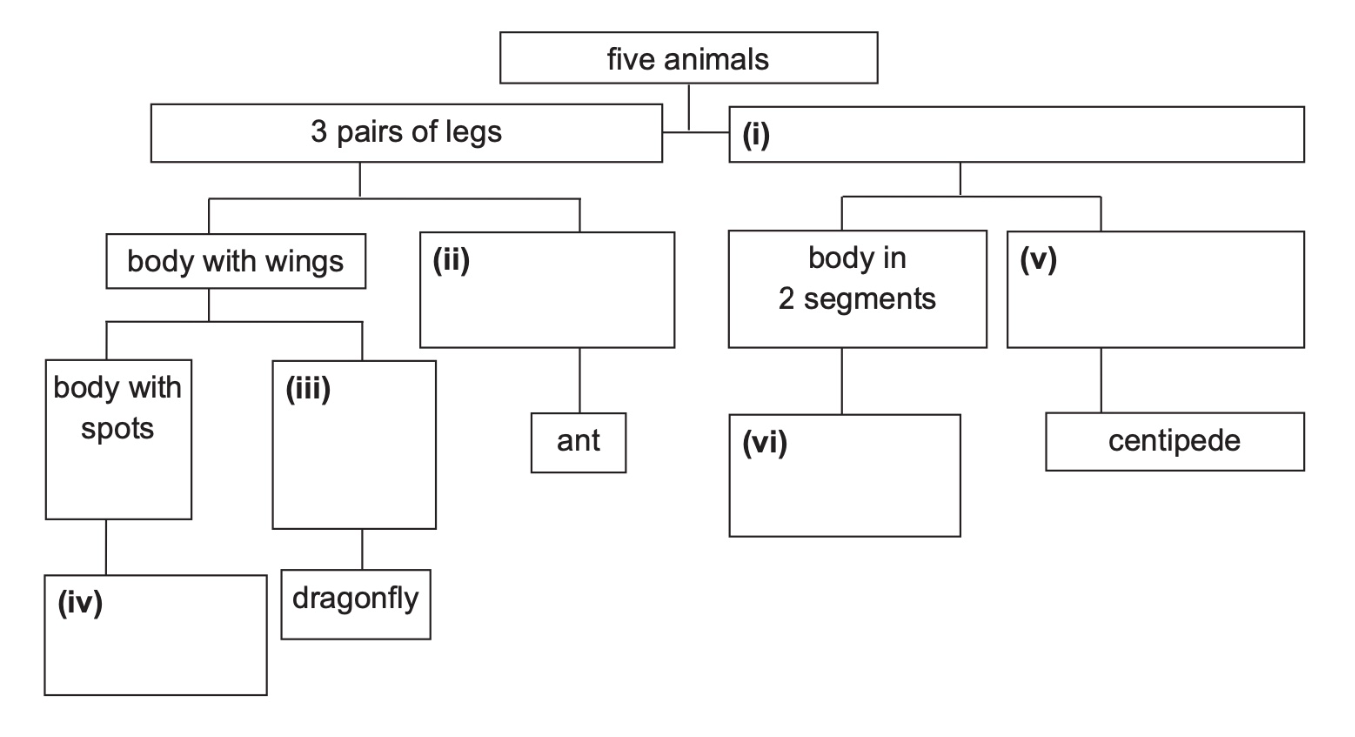
(i) more than 3 pairs of legs
(ii) body without wings
(iii) body without spots
(iv) ladybird
(v) body in more than 2 segments
(vi) spider
The diagram shows a type of cells found in the trachea (windpipe) in humans. Suggest a possible function for these specialised cells.
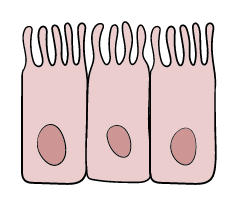
To sweep mucus-trapped dust particles up the windpipe to the throat.
Describe the method used to find the density of an irregular object (e.g. stone). State clearly the apparatus used.
Measure the mass of the irregular object using a mass balance.
Fill up a 100 ml measuring cylinder with 50ml of water. Place the object into the cylinder and measure the increase in volume. The difference in volume would be the volume of the object.
Calculate density by dividing mass by volume.
Tim wanted to fully dissolve a block of table salt in water at room temperature, in the shortest time possible. State three actions he could perform to increase the rate of dissolving of the table salt.
1) The block of table salt can be crushed / made into a powder / broken up into smaller pieces before it is added to water;
2) Water can be heated up so that it is of a higher temperature;
3) mixture of salt and water can be stirred
The diagram below which shows part of an apparatus used in a separation technique.
 (a) What is this apparatus and in which separation technique is it used in?
(a) What is this apparatus and in which separation technique is it used in?
(b) What happens at F and G?
(a) condenser; distillation
(b) F is the outlet for water to move out
(c) G is the point before hot water vapour enters the condenser.
Use a dichotomous key to classify the animals in the chart.
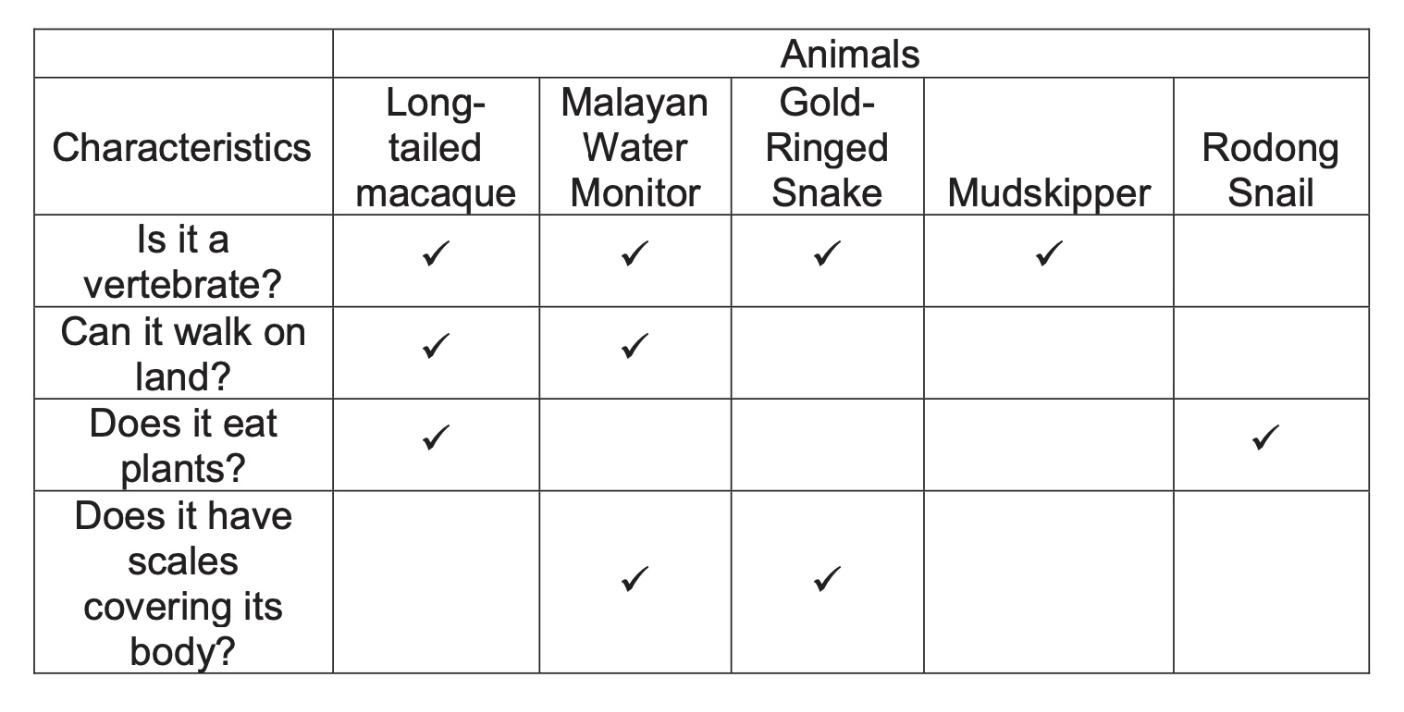
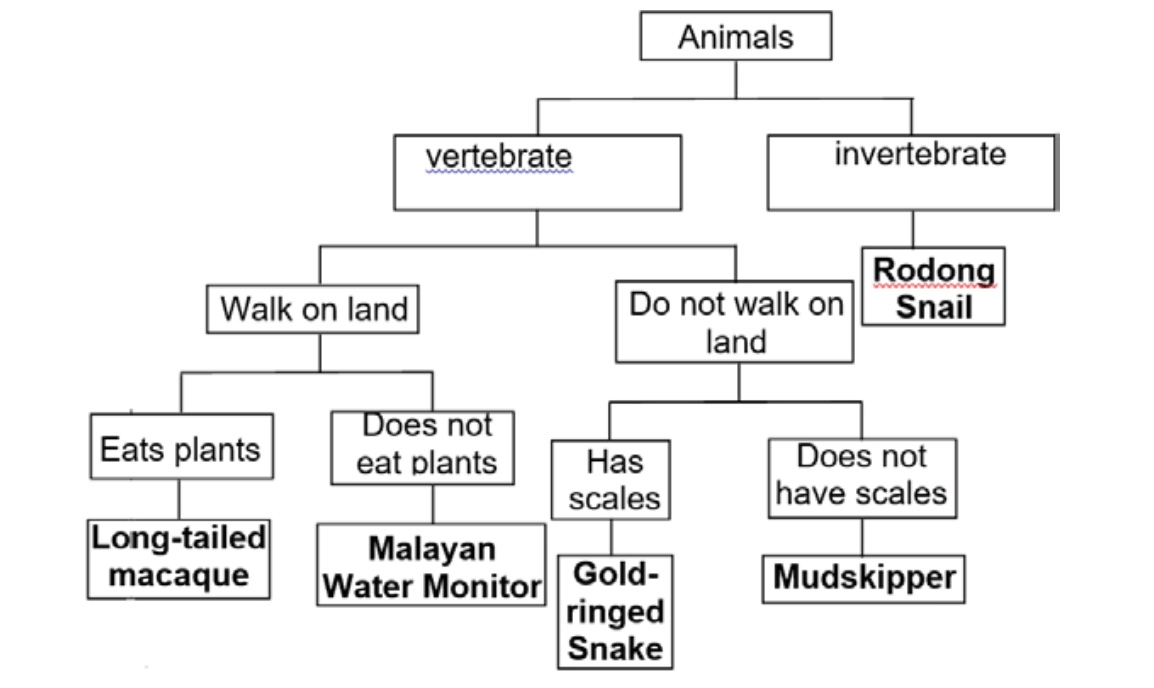
Describe how this cell is adapted for its function.
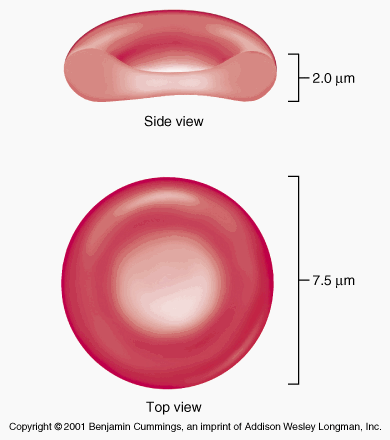
biconcave shape increases surface area to volume ratio for faster diffusion of oxygen;
no nucleus, more space to store more haemoglobin to bind with more oxygen so it can transport more oxygen